Your Window to Inspiration: Seamlessly Browse Tumblr!
Day Of The Dead - Blog Posts
Some of my favorite day of the dead inspired drags by la mas draga contestants.
red rabbit duo

sophia jimenez

jobstar
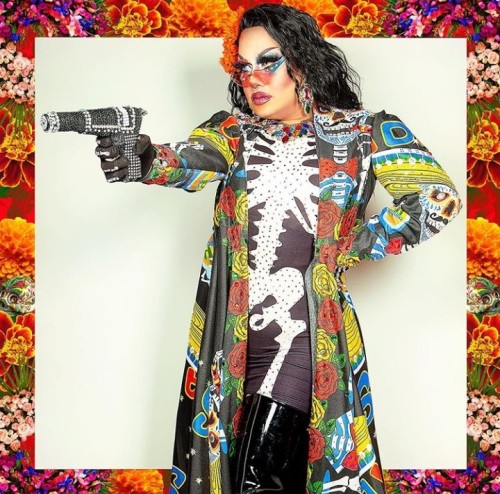

debra men

deborah la grande


BONUS: letal (a judge)



THATS A MEXICSN ARTIST FOR YOU

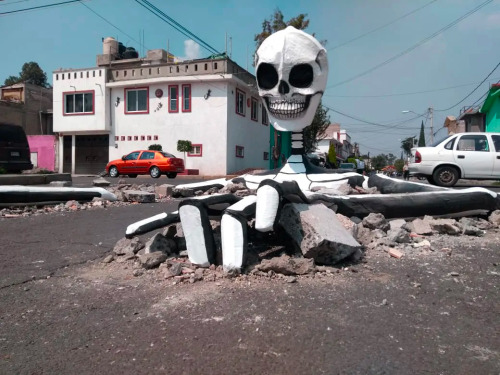
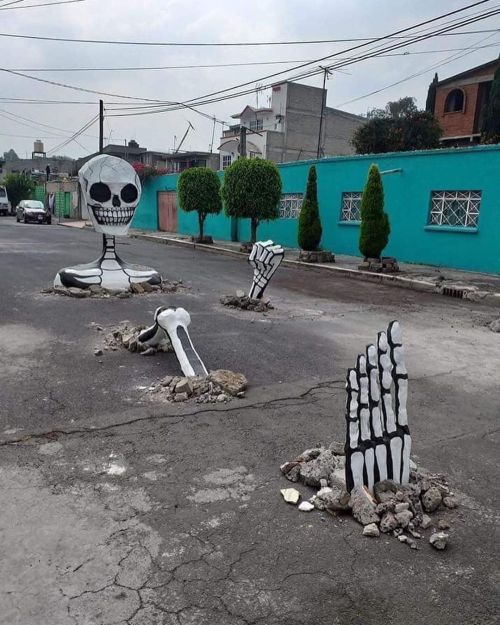

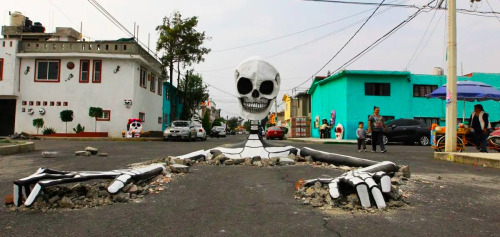
Día de Muertos Skeleton Mexico-based artist Raymundo Medina built a massive skeleton that appears to be lurching out of the pavement on a street in Santa Cecilia Tláhuac, Mexico. Piles of crumbled concrete at the places where the skeleton is connected to the street create the illusion that it is bursting through the asphalt.

IT👏IS👏NOT👏A👏COSTUME👏
It's original name is Calavera Garbancera (Chickpea Skull) and was created in Benito Juárez, Sebastián Lerdo de Tejada and Porfirio Díaz governments to express the discontent of the people and was a symbol of social and political denunciation that eventually became a traditional wear for day of the dead. This wear is called La Catrina, its not a representation of dead itself but that of a dead woman, and it was created by cartoonist José Guadalupe Posada.
(this 👇 is the original calavera garbancera engraved in metal)

Back then texts called calaveras alegres (cheerful skulls) were written by middle class people critiquing in a mocking way the upper class and the country's situation and were published in "combat newspapers" - this texts were accompanied by drawings of skulls and skeletons dressed in gala clothes, drinking pulque, riding on horseback and in high society parties but all of this in lackluster neighborhoods to represent the misery, the political mistakes and society's hypocrisy.
Origin of the name cheakpea skull: cheakpea merchants were notorious for being indigenous people that tried to pass as European and denied they're indigenous origins and their culture. They would dress in high class clothes but live very precariously. Posada tried to convey that in this work of art that was a critique to the Mexicans that were poor but tried to sustain an European lifestyle that they couldn't afford.
Originally she was naked except for a very big and elegant hat with ostrich feathers. Diego Rivera dressed her up and gave her the name La Catrina when he painted this mural 👇

(Catrin was the name given to extremely elegant and wealthy Mexican aristocracy in XIX)
Posada said this about his inspiration: "Death is democratic. Blonde, brunette; rich, poor; everyone ends up being skulls" and this quote is basically the reason she became so traditional on the day of the dead, since it represents so well mexicans point of view about it.
And the texts that accompanied her (the cheerful skulls) became the calaveritas literarias (literary skulls) which are traditionally Mexican verse compositions that are written on the eve of the day of the dead as a manifestation of culture to make fun of both the living and the dead, and remember that we are all going to die. They are written in a satirical or burlesque language and are very short texts that reflect all the spirit and festivity in the face of death.
This

Is

Not

A

Costume

It

Is

Mexican

Culture



Ofrenda de Día de Muertos en las escalinatas de la Universidad de Guanajuato. Guanajuato, México.
Day of the Dead celebration. Guanajuato, México.



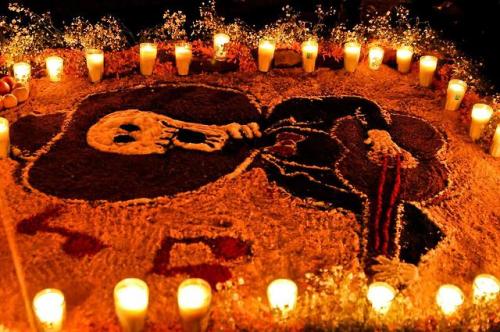


“Para un habitante de Nueva York, París, o Londres, la muerte es la palabra que jamás se pronuncia porque quema los labios. El mexicano, en cambio, la frecuenta, la burla, la acaricia, duerme con ella, la festeja, es uno de sus juguetes favoritos y su amor más permanente. Cierto, en su actitud hay quizá tanto miedo como en la de otros; más al menos no se esconde ni la esconde; la contempla cara a cara con impaciencia, desdén o ironía: ‘si me han de matar mañana, que me maten de una vez’.” - Octavio Paz (El Laberinto de la Soledad, 1950)
This

Is

Not

A

Costume

It

Is

Mexican

Culture

ITS THE FIRST OF NOVEMBER!!!

FELIZ

DIA

DE

MUERTOS
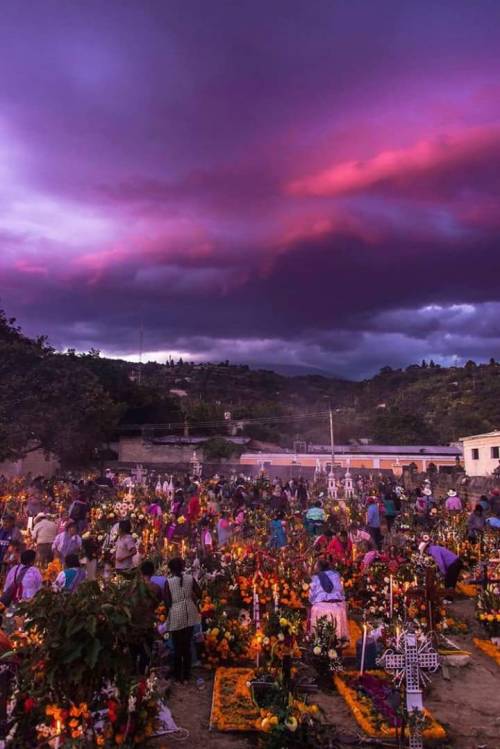
Ya se viene el dia de muertos y reforma se pone guapo 😍🖤💀
